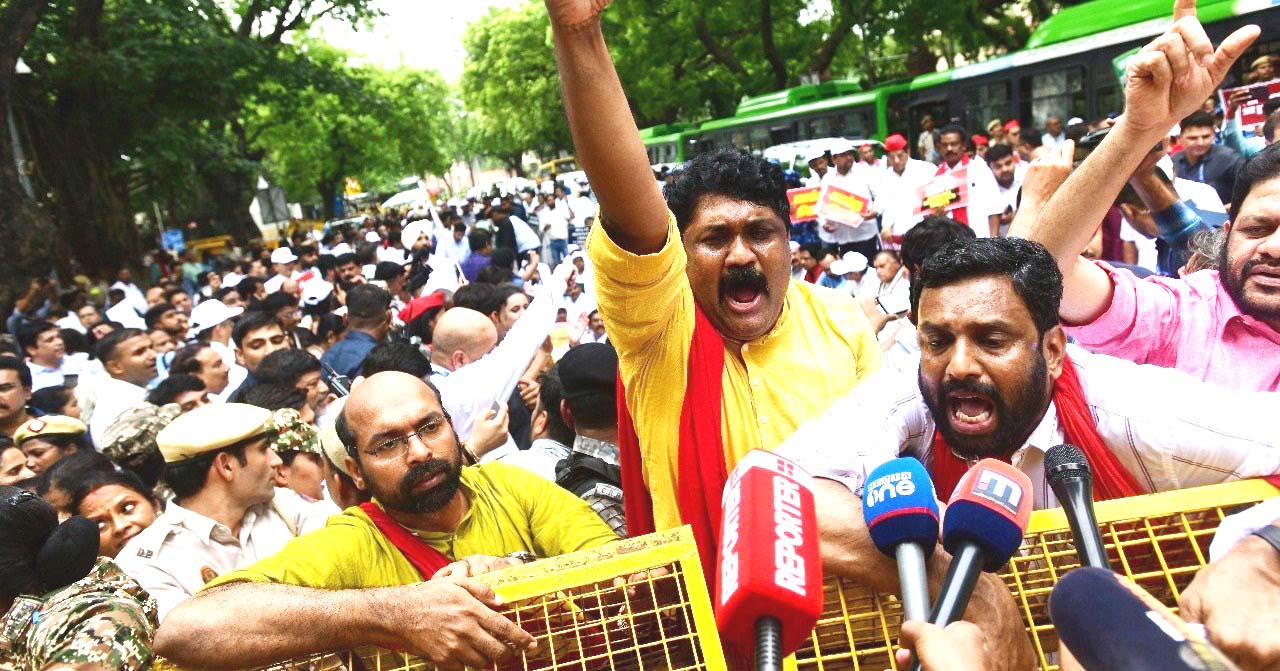
John Brittas
THE Parliament session that began on July 12 laid bare how Indian democracy is sliding further into the depths of authoritarianism. The shock came early: the abrupt resignation of Rajya Sabha chairman Jagdeep Dhankhar. Despite having performed every unsavoury task expected of him for the government, he was shown the door in an unceremonious, almost humiliating manner. Since then, he has vanished from public view.
That ominous start set the tone. Even as the session opened, the Supreme Court was hearing petitions challenging the Election Commission of India’s (ECI) order for a Special Intensive Revision (SIR) of electoral rolls in poll-bound Bihar. The debates in Parliament over the matter spilled beyond the House, drawing public attention and sharp attacks on the Modi government. The opposition tore into the centre over its failures in Operation Sindoor. The government’s hope that the prime minister could sway the nation with a grand address collapsed as opposition parties united to highlight intelligence lapses, puncturing the carefully cultivated narrative pushed through a compliant media. The handling of the Pahalgam tragedy left the government cornered.
What began as a row over SIR and wrongful voter deletions escalated swiftly. Accusations emerged that the government, aided by the ECI, had inserted fictitious names into voter lists from the southern states to the northern frontiers. This revelation struck at the heart of the legitimacy of the Modi government’s past victories, suggesting they were propped up by manipulated rolls. Explosive scenes followed in Parliament, with repeated adjournments as the government refused to debate these allegations, hiding behind the excuse that the SIR matter was sub judice.
The refusal to engage on what the opposition called the gravest threat to democracy in recent memory led to disruptions. As many as 300 Opposition MPs staged protests against electoral fraud and attempted a march to the ECI headquarters. Police used brute force to detain them, but the damage was done: documents and testimonies had already surfaced pointing to criminal tampering with voter rolls.
As the session grinds on, the centre faces unprecedented charges, not of mismanagement or incompetence alone, but of dismantling the very architecture of Indian democracy.
Opposition MPs March to ECI Over Voter Roll Fraud
Three hundred Opposition MPs took to the streets in defiance, marching towards the Election Commission of India’s headquarters in New Delhi on August 10, to expose what they called a “systematic theft of India’s mandate.” The protest, sparked by the Special Intensive Revision (SIR) of electoral rolls in Bihar and mass wrongful deletions of voters, intensified after allegations surfaced that fictitious names had been inserted into electoral rolls – from the southern states to the northern ones – allegedly with the ECI’s complicity. Opposition leaders charged that such manipulation struck at the very heart of democracy, casting a shadow over the legitimacy of the Modi government’s previous electoral victories. There were protests inside Parliament as well, with repeated adjournments after the government refused to debate the issue, dismissing it as sub judice.


